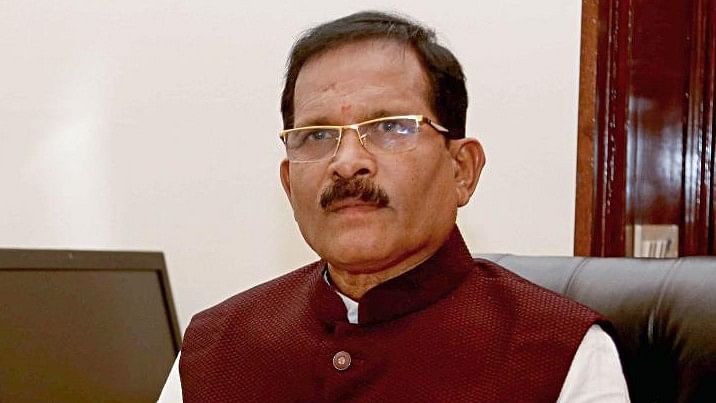
Minister of State for Power Shripad Naik.
Credit: PTI File Photo
New Delhi: Private sector owns over 52 per cent of the total installed power generation capacity of 446GW in the country, playing an important role in the sector, Parliament was informed on Thursday.
In a written reply in Lok Sabha, Minister of State for Power Shripad Naik said, "Private sector is playing an important role in India's power generation. Generation is a de-licensed activity as per the Electricity Act, 2003 and 100 per cent Foreign Direct Investment (FDI) in the power sector in India is permitted for generation from all sources (except atomic energy)." As on June 30, 2024, total installed capacity in the country is 4,46,190 MW and out of which the contribution of the private sector is approximately 2,34,065 MW i.e. 52.5 per cent, he informed the House.
Also, he stated that most of the renewable energy projects in the country are being set up by private sector developers selected through a transparent bidding process.
In another reply to the House, the minister said that with the rapid expansion & growth of the Indian economy, the demand of electricity is also witnessing an unprecedented growth.
The electricity demand in India has witnessed a growth of around 9 per cent for the years 2021-22 and 2022-23, he informed the House.
The total emissions have increased commensurate with the increase in generation of the electricity, he stated.
However, he pointed out that due to the increasing share of renewable energy, the carbon intensity of the grid is reducing.
There is a significant decrease of about 9 per cent in the average carbon emission factor of the grid electricity in India from 2013-14 to 2022-23.
India in its Intended Nationally Determined Contributions (INDCs) stands committed to achieve about 50 per cent cumulative electric power installed capacity from non-fossil fuel-based energy resources by 2030, the minister said.
At present, he said India has already achieved 45.5 per cent installed capacity from non-fossil fuel-based resources.
In another reply to the House, the minister stated that in order to meet estimated electricity demand by the year 2031-32, generation planning studies have been carried out by the Central Electricity Authority (CEA).
As per the study results, it is envisaged that to meet the base load requirement of the country in 2032, the required coal & lignite based installed capacity would be 283 GW against the present installed capacity of 217.5 GW.
Considering this, the government proposes to set up an additional minimum 80 GW coal based capacity by 2031-32, he informed the House.
The estimated capital cost for setting up of new coal based thermal capacity as considered in the National Electricity Plan is Rs 8.34 crore/ MW (at 2021-22 price level).
Hence, the thermal capacity addition is expected to entail an expenditure of minimum Rs 6,67,200 crore by 2031-32, he stated.